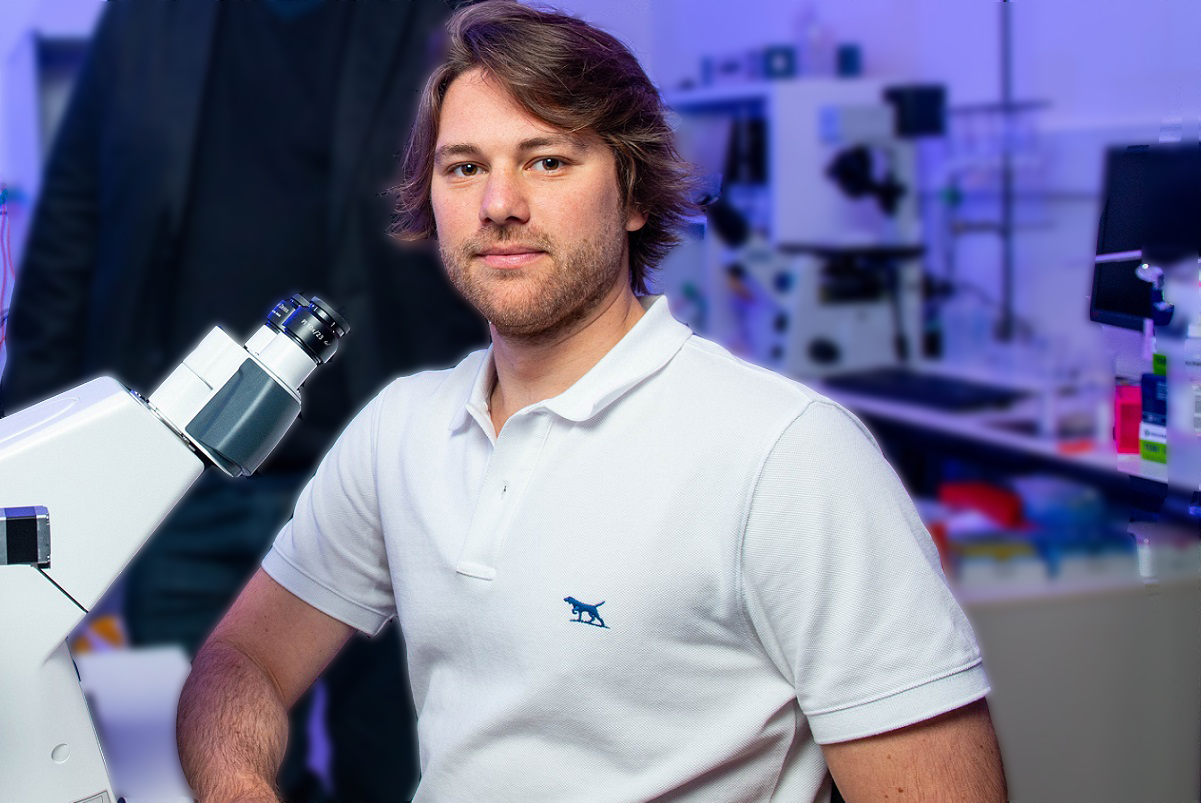
We sat down to talk with Flinders University’s Dr Luke Grundy, Research Fellow in Clinical Pharmacology and Head of Bladder Research within the Visceral Pain Research Group at SAHMRI, about his innovative ideas to help unlock the mysteries of chronic pelvic pain.
What made you decide to work in the research field?
I studied neuroscience as an undergraduate student in the UK and I realised that we know so little about how the nervous system really works. Understanding how sensations from our internal organs are generated is still a huge unknown, although any issues with these organs can make a huge difference to our quality of life.
What is your current research about?
I’m trying to understand how chronic pelvic pain develops by studying nerves that transmit pain from our internal organs. Just like our skin, many of our internal organs have a nervous system that provides our brain with important information regarding the health of these systems. We believe that chronic pain is a failure of these nerves to reset back to normal after an injury or inflammation, so by understanding how these nerves function in healthy situations and what causes them to become more sensitive over time, we can develop effective treatments for chronic pelvic pain disorders.
How will your work benefit the wider community?
Chronic pelvic pain is one of the world’s most underestimated health care problems, affecting around 10% of the population. It’s a key clinical feature of several female predominant disorders, including cystitis, endometriosis and irritable bowel syndrome. Currently there are no long-term treatments for chronic pelvic pain. Over-the-counter medications usually aren’t strong enough to provide adequate relief, and opioid-based medications cause dependence and addiction. This research will ultimately provide new drugs that provide effective relief of chronic pelvic pain.
What has been your proudest moment as a researcher?
Thanks to a Flinders University Impact funding scheme, I’ve recently received my first independent grant to start a project I’ve been thinking about for many years.
What has been your most challenging moment as a researcher?
Developing new laboratory techniques that provide meaningful information to understand pelvic pain can sometimes take years to develop. Having to keep faith in the process and trusting yourself in these situations is a real challenge, but it’s also what is ultimately so satisfying when it all works out.
What does a normal day look like for you?
One of the best things about being a scientist is that my day can go in many directions. I might be in the lab doing experiments, at my desk writing grant applications and scientific papers, giving a talk at a conference or a community forum, or reading the latest discoveries from other researchers in the field and coming up with new ideas for future projects.
If there is one piece of advice you could impart on future researchers and university students, what would it be?
Think about what you want your life to be like in the future and make decisions based on that goal. If you’re working towards that goal, you’ll always be happy.

